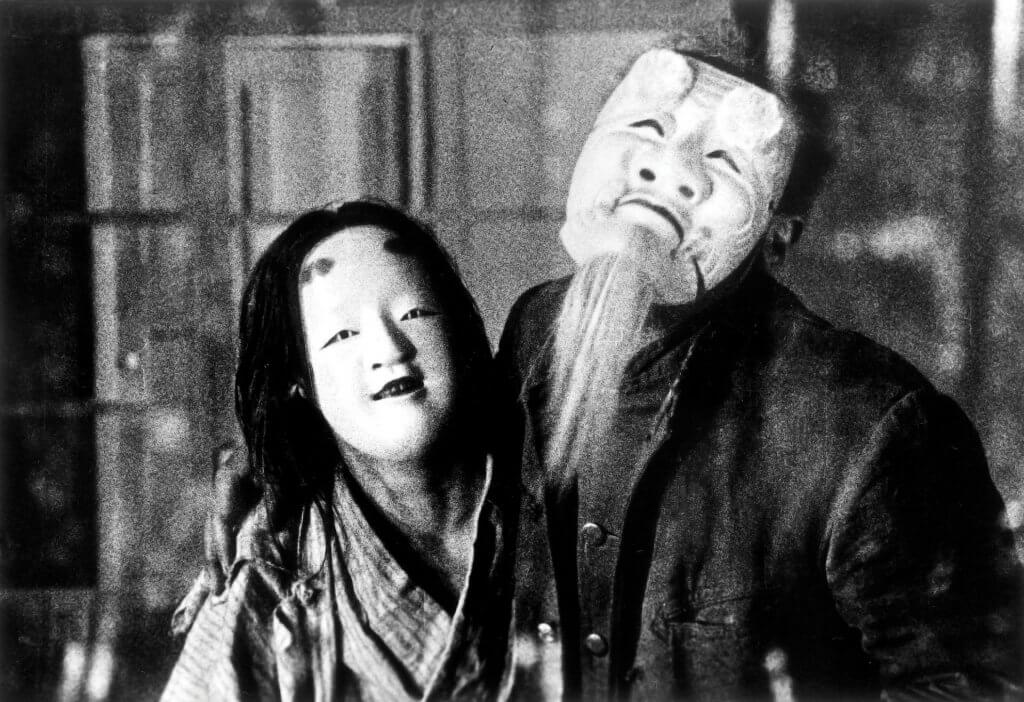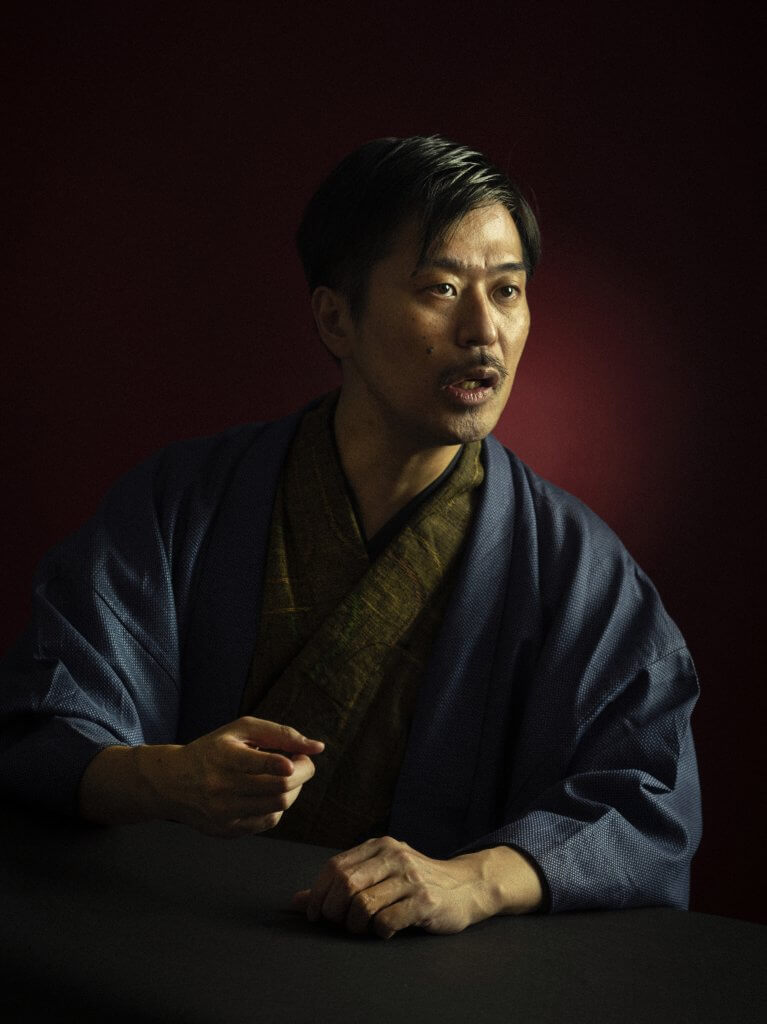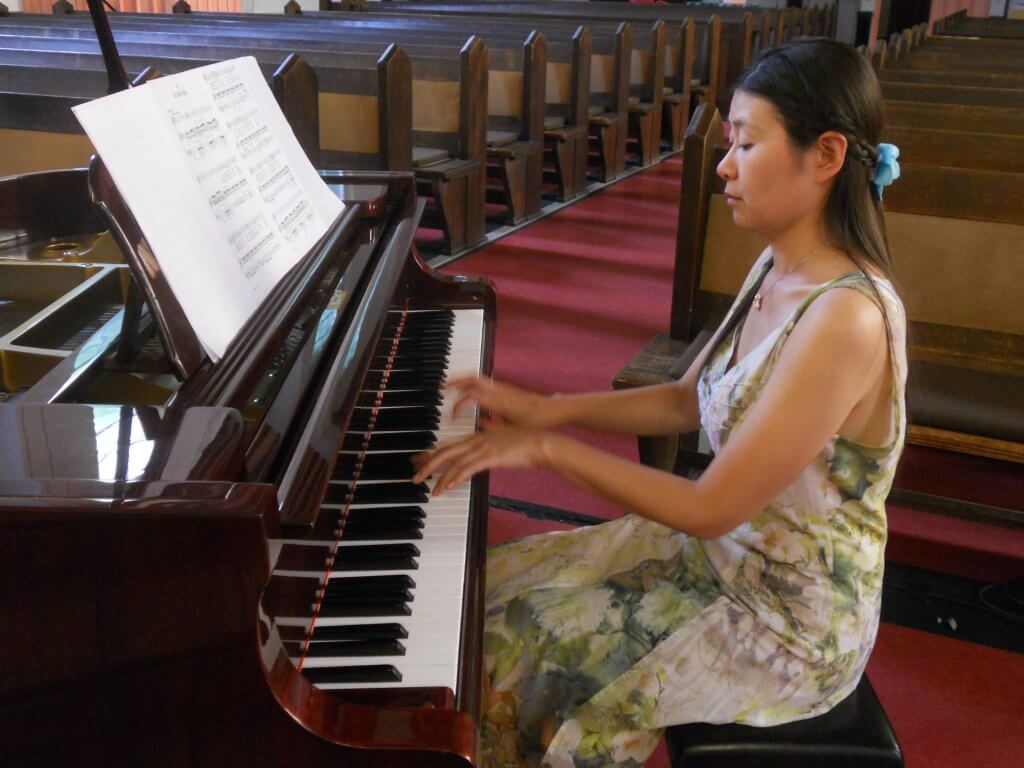10.09.22 | 狂った一頁 | Ichiro Kataokoa and Reiko Emura adding a live score to “A PAGE OF MADNESS”
JP 1926, D: Kinugasa Teinosuke, A: Inoue Masao, Nakagawa Yoshie, 71′, silent, DCP
Ichiro Kataokoa and Reiko Emura adding a live score to A PAGE OF MADNESS
We present the Japanese silent classic A PAGE OF MADNESS, which is live scored and told by Ichiro Kataoka and Reiko Emura. Emura plays and improvises on the piano, while Kataoka performance as a so called “Katsudô-Benshi”. In Japan, a Katsudô-Benshi (abbreviation: Katsuben) was a regular feature of cinematic culture and accompanied silent film screenings as a narrator until well into the 1930ies. In this, the speaker not only tells the scenes, but also renders dialogues of occurring characters with different voices, giving them a vocal presence, and delivers an interpretation of the film’s plot. So, there can be no talk of a Katsuben being a neutral narrator. During the 1920ies and 30ies, going to the cinema was not only contingent on being interested in the shown film, but also – so the hope – on the captivating art of narrating and the virtuoso use of his or her voice.
At the heart of the early avant garde film A PAGE OF MADNESS, which was considered as lost until 1971, there are nameless characters caught up in a whirlwind of insanity: The caretaker of a mental home wanders through the gloomy corridors of a prison-like institution and keeps ending up at a cell of a very specific inmate – the one of his wife. When their mutual daughter appears in the institution to report to her mother about her forthcoming marriage, more plotlines are initiated, telling of the family’s past on different time levels, including telling why the mother is in her delusional condition. The film’s visual intensity feeds on a sheer inexhaustible stock of ideas: double triple, sometimes quadruple exposures of the material, plus an associative montage that is not random but rigorously following a form, setting the viewers in the disoriented, psychotic conditions of the characters. The chilling and ghostly images, the Noh-masks and the dances create a discomforting rupture of perspective, making it unclear who belongs on which side of a locked cell door. In its depiction of subjective, mental and emotional disarray one of the most fascinating mental hospital films to this day.
Before the screening, Ichiro Kataoka, Dr. Shiro Yukawa (University of Bonn) and Florian Höhr (Nippon Connection Festival Frankfurt/Main) will present and discuss examples from the “Kataoka Records Project”. In 2012, Kataoka handed over his collection of 3900 Japanese shellac records to the University of Bonn, which is being digitalised and systematically filed ever since. It is a unique collection worldwide, consisting of records from the years 1915 to 1950, that mostly come from the Japanese film and entertainment culture.
| Thu 10 Sept | UT Connewitz |
| 7:30 pm 9 pm | Kataoka Schallplattenprojekt Performance in Japanese with English subtitles A PAGE OF MADNESS regular: 10€ / reduced 12€ |
Ichiro Kataoka acquired his degree at Nihon University College of Art and started training with Midori Sawato in 2002. Today, he is the most known Katsuben of his generation, making an appearance with his performances internationally. As a benshi, Kataoka took part in various films and works as voice-over artist for animation and video games. 2020, he published the monograph Katsudō Shashin Benshi: Eiga ni Tamashii wo fukikonda Hitobito (The story of film narrators: people that breathed life into cinema).
Reiko Emura was born in Sendai, Japan. After studying composition at Tokyo University of The Arts, she came to Germany and studied song interpretation at Karlsruhe University of Music under Mitsuko Shirai and Hartmut Höll. She has played own compositions with the Hungarian Symphony Orchestra, New Japan Philharmonic Orchestra, Rundfunk-Sinfonieorchester Berlin and others. She has played with conductors like Maxim Shostakovich, Kenichiro Kobayashi and Robert Hanell.








